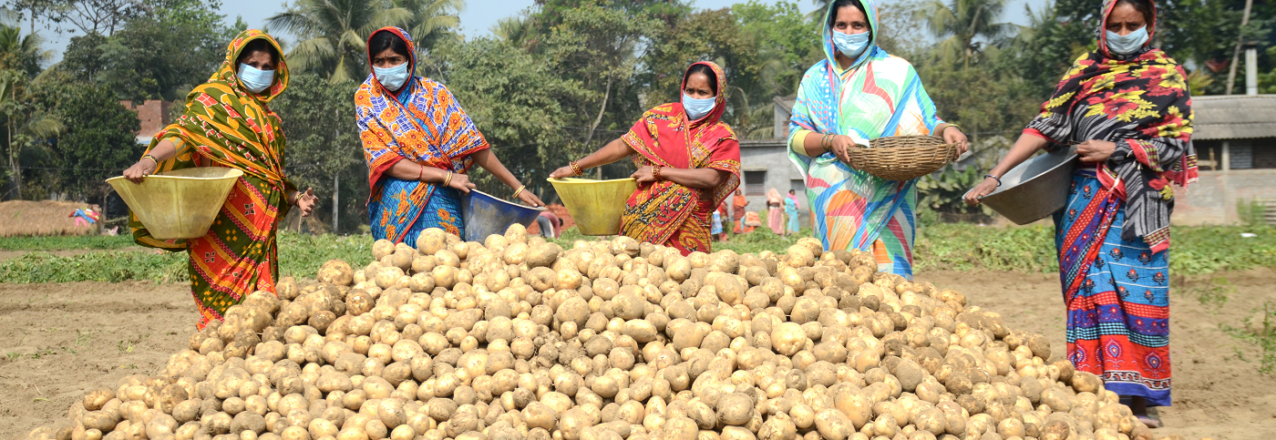USAID and PepsiCo are partnering to make the business case for women’s empowerment in the PepsiCo potato supply chain in West Bengal, India. The partnership is improving women’s access to land, skills, and employment and entrepreneurial opportunities to increase adoption of sustainable farming practices (SFPs), performance of PepsiCo Key Performance Indicators (KPIs), and women’s income and agency, showing that investing in women’s empowerment makes social and economic sense.
Under a partnership between USAID’s Gender Equality and Women’s Empowerment Hub and the Land and Resource Governance Division, this activity is implemented by the Integrated Land and Resource Governance (ILRG) program. This pilot is the foundation for USAID’s Global Development Alliance with PepsiCo, which is making the business case to scale women’s economic empowerment approaches throughout its agricultural supply chains around the world.
Key Year 1 Results (2019 – 2020)
- 500 women in 48 women’s groups trained in potato agronomy, out of which 47% were women in PepsiCo farming families.
- First time many women received agriculture training, increasing their self-confidence and recognition by their families and communities.
- Women Field Agronomists and Community Agronomists recruited and trained, offering field support to farming families with increasing community acknowledgement that women can be a respected and valuable source of agronomy knowledge.
- Innovative land leasing pilot enabled women’s groups to enter the PepsiCo supply chain.
- 32 local PepsiCo staff and 4 PepsiCo partner staff trained in gender and women’s roles in agriculture.
- Training modules on potato training, sustainable farming practices, gender-based violence, and gender norms change developed/adapted for PepsiCo use across its supply chain in India.


